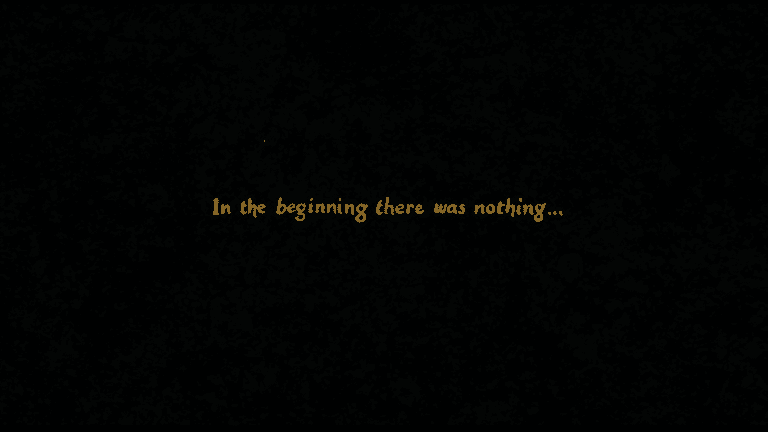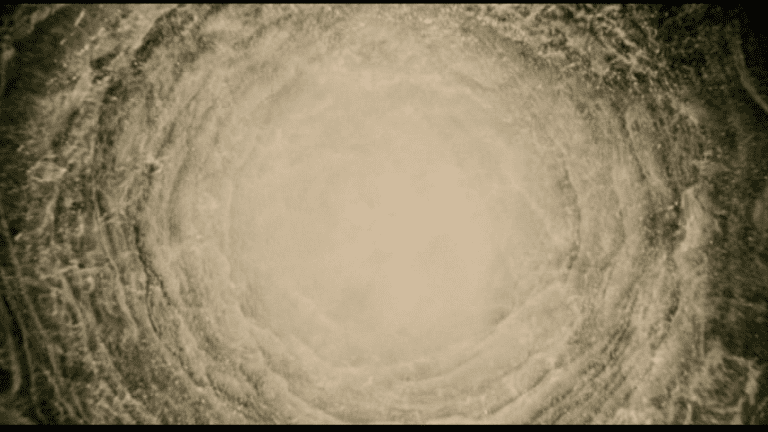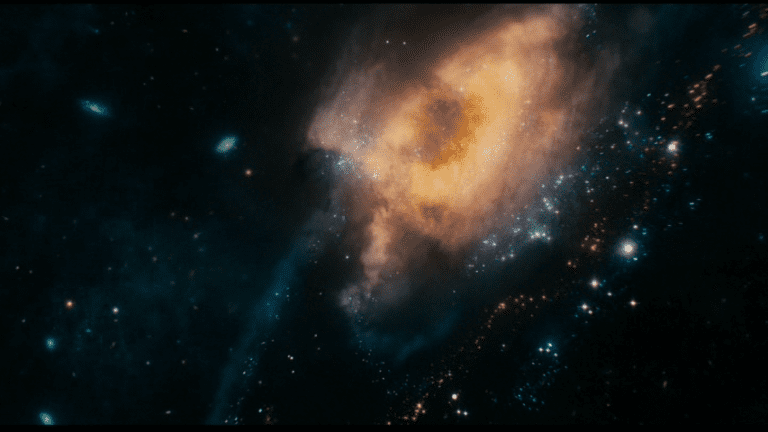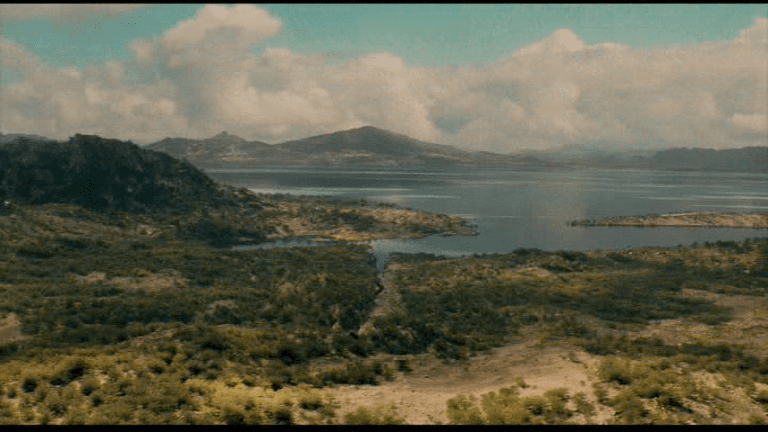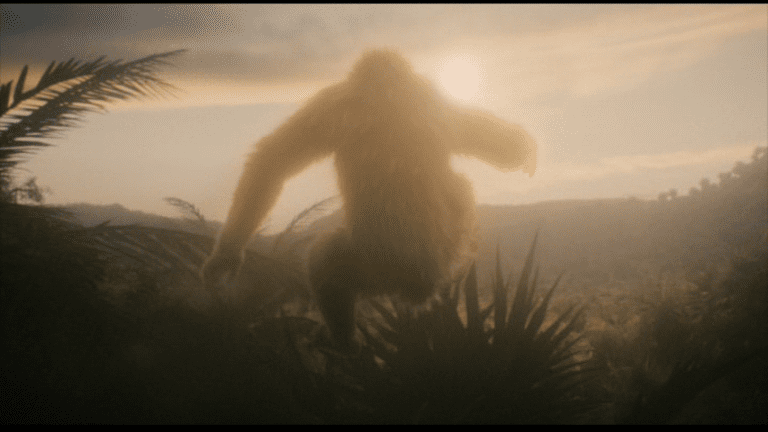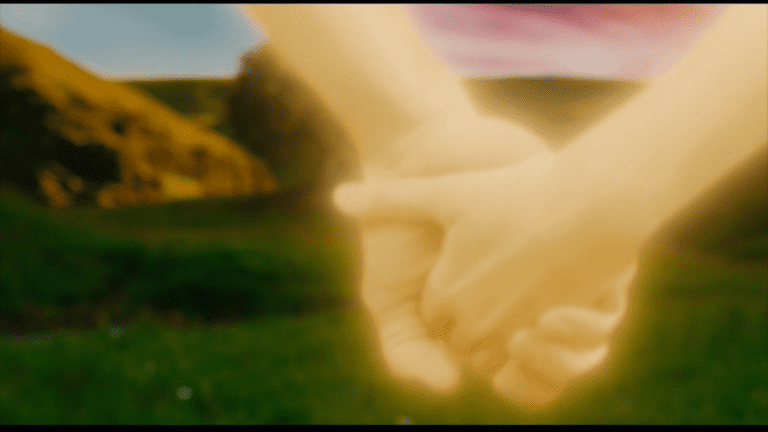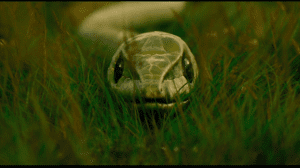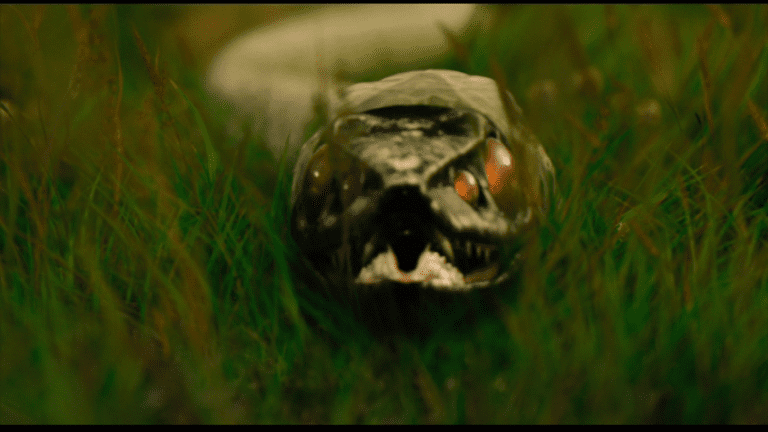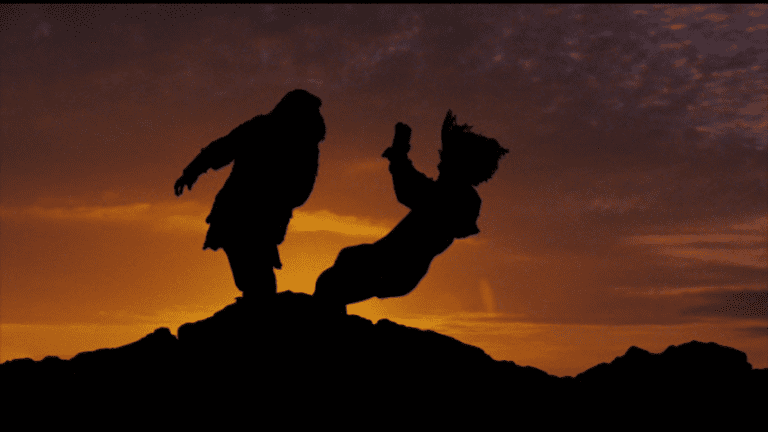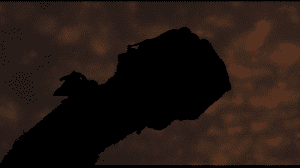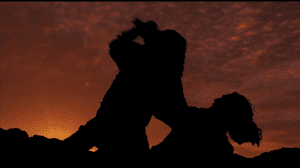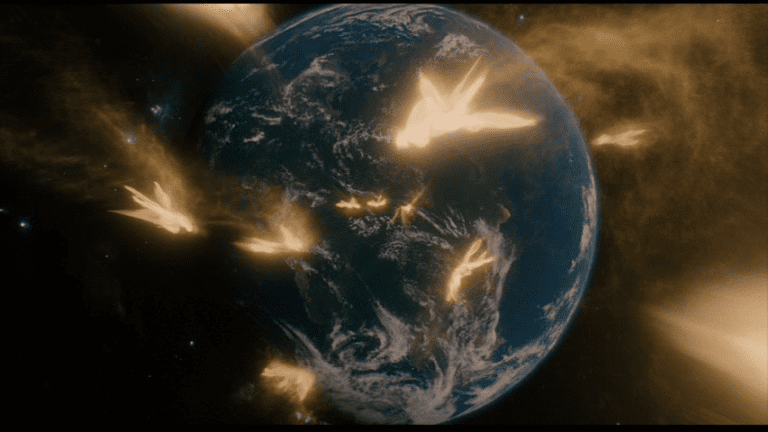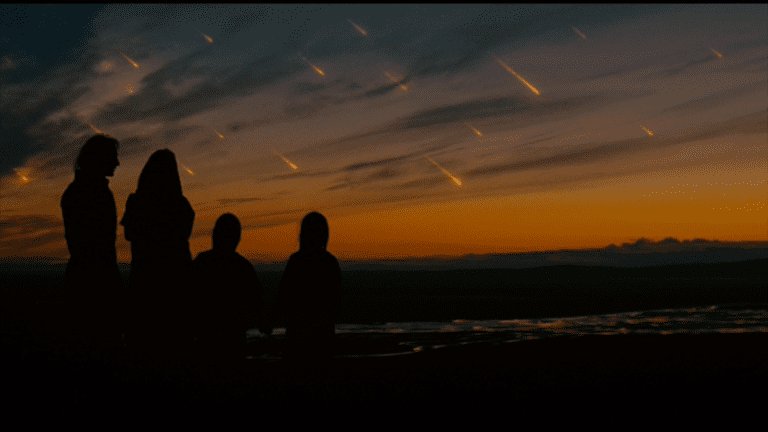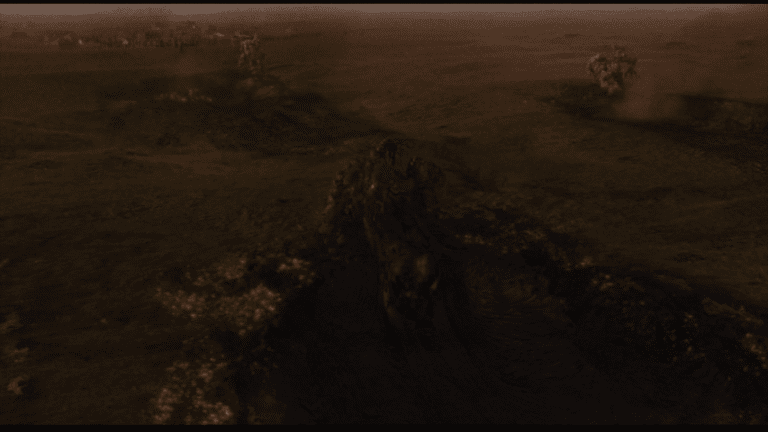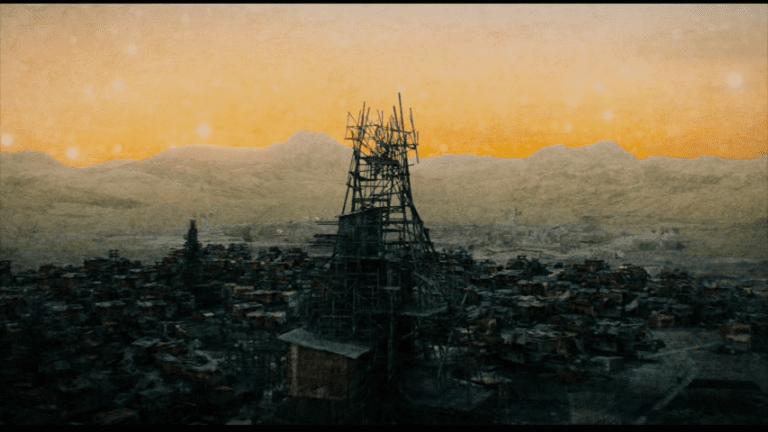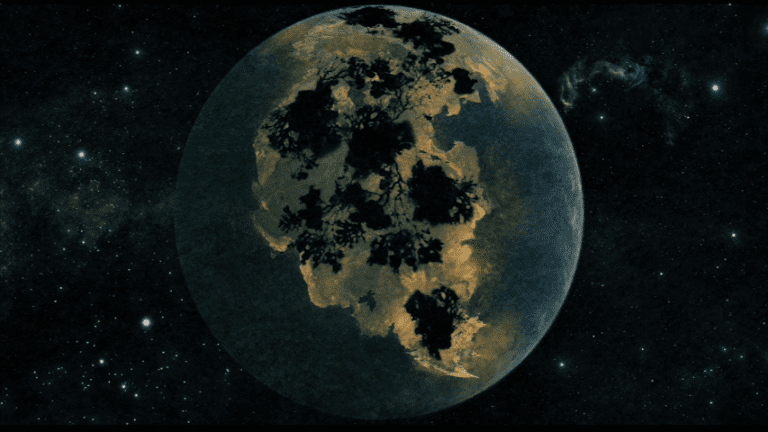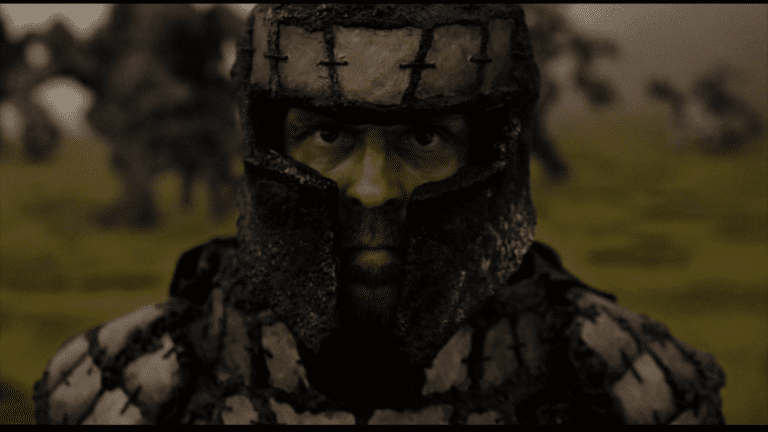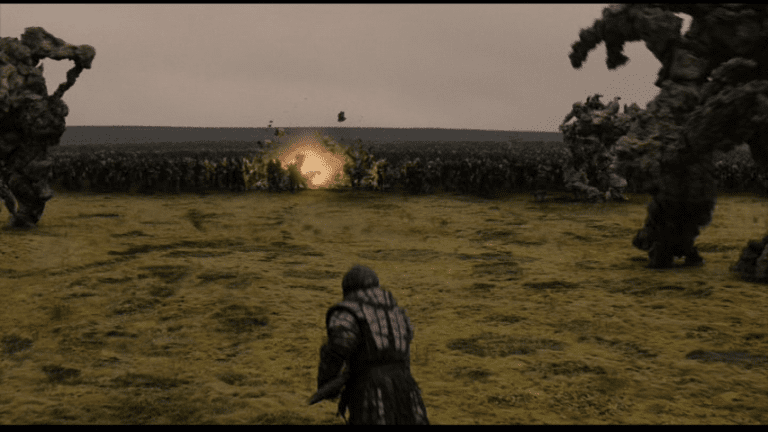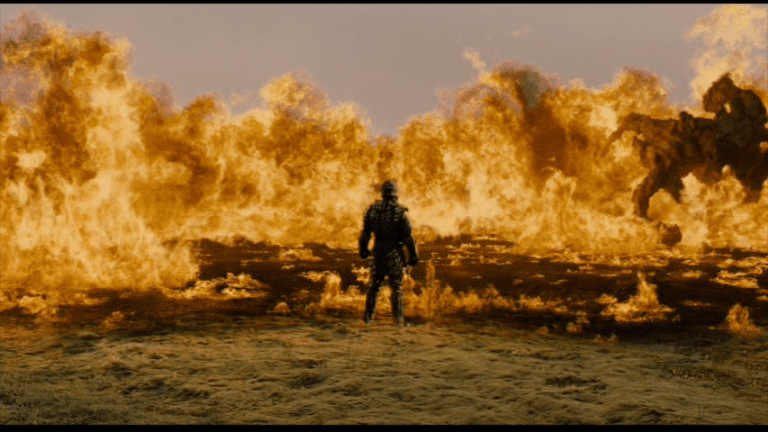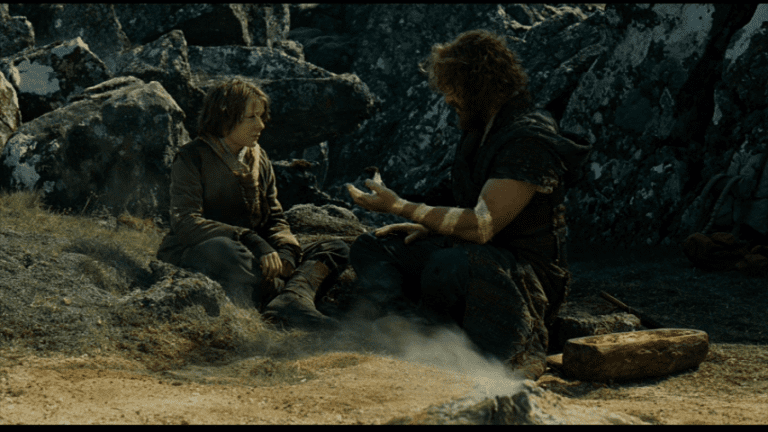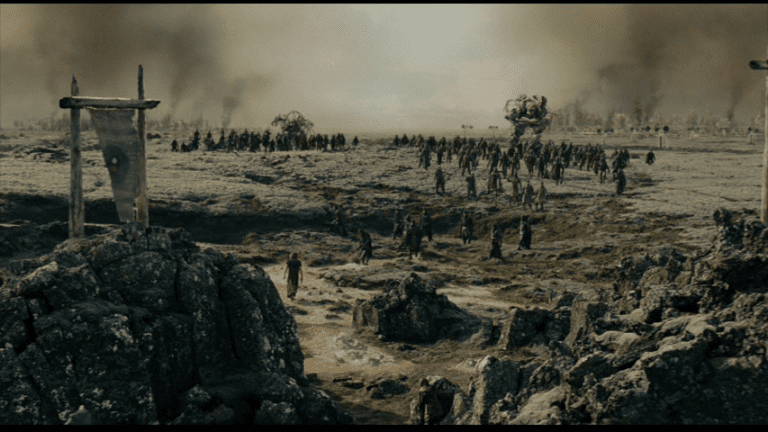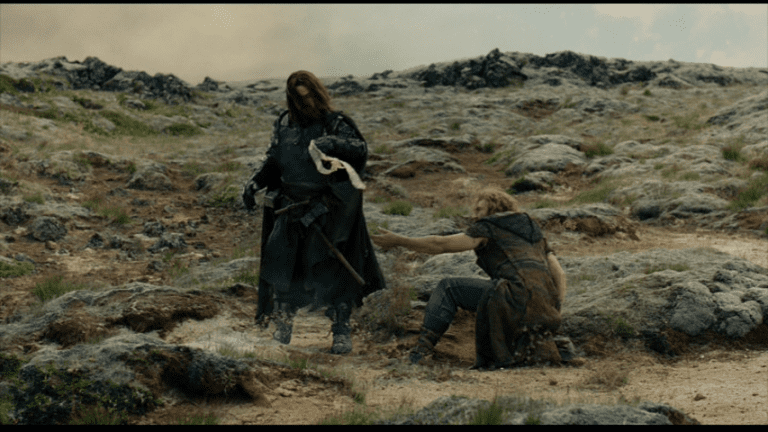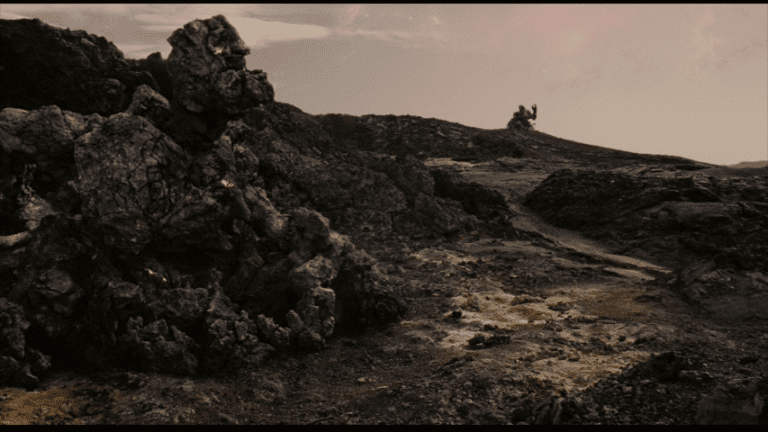There are two Creation stories in Genesis, and the details don’t always mesh. Likewise, there are three origin stories in Darren Aronofsky’s Noah — the opening prologue, the story of the Watchers told by Og, and the story of Creation and the Fall told by Noah — and the details there don’t always fit together all that comfortably, either.
Films, children’s books and other retellings of the Creation story sometimes integrate the two Genesis stories by omitting some details and rearranging the rest, so that, for example, Adam names the animals and Eve is taken from Adam’s rib (a la Genesis 2) before God tells the man and woman to be fruitful and multiply (a la Genesis 1).
Similarly, I thought it might be fun to take the three origin stories in Noah and weave them together into a single narrative that shows the creation and fall of the Watchers and early humans together. The screencaps below are only a sampling of the images from these sequences, but I have kept every word that accompanied them.
Ex nihilo.
Prologue: “In the beginning there was nothing…”
Noah: “In the beginning, there was nothing. Nothing but the silence of an infinite darkness.”
The first day.
Noah: “But the breath of the Creator fluttered against the face of the void, whispering, ‘Let there be light.’ And light was. And it was good. The first day.”
The second day.
Noah: “And then the formless light began to take on substance and shape. A second day.”
Og: “The Creator formed us on the second day. The day He made the heavens.”
The third and fourth days.
Noah: “And our world was born. Our beautiful, fragile home. And a great, warming light nurtured its days. And a lesser light ruled the nights. And there was evening. And morning. Another day. And the waters of the world gathered together, and in their midst emerged dry land. Another day passed. And the ground put forth the growing things. A thick blanket of green stretching across all Creation.”
The fifth and sixth days.
Noah: “And the waters, too, teemed with life. Great creatures of the deep that are no more. Vast multitudes of fish, some of which may still swim beneath these seas. And soon the sky was streaming with birds. And there was evening. And there was morning. A fifth day. Now the whole world was full of living beings. Everything that creeps, everything that crawls, and every beast that walks upon the ground. And it was good. It was all good. There was light and air and water and soil, all clean and unspoiled. There were plants and fish and fowl and beast, each after their own kind. All part of the greater whole. All in their place. And all was in balance. It was paradise. A jewel in the Creator’s palm.”
The creation of man and woman.
Noah: “Then the Creator made Man. And by his side, Woman. Father and mother of us all.”
Og: “We watched over Adam and Eve. Saw their frailty and their love.”
The Fall.
Prologue: “Temptation led to sin…”
Noah: “He gave them a choice. Follow the temptation of darkness or hold on to the blessing of light. But they ate from the forbidden fruit. Their innocence was extinguished.”
Og: “And then we saw their fall. And we pitied them.”
Cain kills Abel.
Prologue: “Cast out of Eden, Adam and Eve had three sons: Cain, Abel and Seth. Cain killed Abel and fled to the East…”
The Watchers come down to Earth.
Og: “We were not stone then, but light. It was not our place to interfere. Yet we chose to try and help mankind. And when we disobeyed the Creator, He punished us. We were encrusted by your world. Rock and mud shackled our fiery glow.”
The Watchers help the descendants of Cain.
Prologue: “…where he was sheltered by a band of fallen angels: The Watchers. These Watchers helped Cain’s descendants build a great industrial civilization.”
Og: “Still, we taught mankind all we knew of Creation. With our help, they rose from the dust, became great and mighty.”
The wickedness of Cain’s descendants and/or humanity as a whole.
Prologue: “Cain’s cities spread wickedness, devouring the World.”
Noah: “And so for the ten generations since Adam, sin has walked within us. Brother against brother. Nation against nation. Man against Creation. We murdered each other. We broke the world. We did this. Man did this. Everything that was beautiful, everything that was good, we shattered.”
Og: “But then they turned our gifts to violence. Only one man protected us. Your grandfather Methuselah. We were hunted. Most of us killed.”
Tubal-Cain enslaves the Watchers and kills Lamech.
Prologue: “Only the descendants of Seth defend and protect what is left of Creation. Today, the last of Seth’s line becomes a man.”
The Watchers who are not killed or enslaved long for home.
Og: “Those who lived were left prisoners in these stony shells, marooned upon this barren land. We begged the Creator to take us home. But He was always silent.”
A few notes:
First, the film’s take on the second day of creation is full of fascinating details.
For example, Genesis 1:6-8 specifies that God created a vault to separate the waters of heaven from the waters of the earth, but the film, in order to synthesize the Genesis story with our current scientific understanding of the origin of the universe, changes this to a statement about “formless light” taking on “substance and shape”. This matches the current scientific belief that the universe consisted of nothing but energy at first, before some of it was converted to matter; but it also fits the basic thrust of Genesis, which is that God brought order out of the waters of chaos.
Also, the Bible never specifies when, exactly, the angels were created, but the Midrash Rabbah says they were created on the second day because Psalm 104 seems to indicate that they were created after the creation of the firmament. Another tradition holds that the angels were created on the second day, rather than the first, so that no one would think God had needed their help to create the world out of nothing.
Note also that the angels are made of tzohar, the primordial light that God created on the first day before there was any sun, moon or stars to give light. This tzohar also appears in the film as a mineral that the humans mine from the earth (Noah uses it for illumination on the Ark, while Tubal-Cain uses it as a weapon). In the published screenplay and both novelizations, Og even says that humans turned against the Watchers and killed them so that they could access “the tzohar inside us.”
Second, perhaps the hardest thing to reconcile here is Og’s claim that he and his fellow Watchers came to help “Adam” and the prologue’s statement that the Watchers helped the descendants of Cain specifically. Indeed, in the visuals that accompany Og’s monologue, you can see how there is already a growing human settlement near the place where the Watchers fell — which means that, for all the pity the Watchers felt for Adam and Eve, the Watchers did not actually come down to earth until long after Adam, Eve and their descendants had been fruitful and multiplied. Indeed, it is even possible that they did not come until long after Cain had killed his brother.
Third, note how when the humans kill the Watchers here, there is a flash of light as the Watchers die and their tzohar is exposed, but these Watchers do not ascend into Heaven as the other Watchers will when they die defending Noah’s Ark.
Finally, it is not clear whether Methuselah’s defense of the Watchers — and his slaying of thousands of humans with a single blow — happened before or after Tubal-Cain murdered Lamech. I have placed it before because of Methuselah’s age (when Noah meets him two or three decades after the murder of Lamech, Methuselah is supposed to be a lot older than he is here), but I could see a case for placing it after.
For one thing, Og makes it sound like Methuselah protected the Watchers when they were the targets of a full-scale genocide, but Tubal-Cain has a couple of Watchers working for him as slaves when he meets Lamech; perhaps the humans did not kill the Watchers en masse until later. Also, one could argue that Methuselah took up arms against the other humans partly as revenge for the murder of his son.
However, Tubal-Cain is nowhere to be seen when Methuselah wipes out thousands of humans with one blow, and I am inclined to think that Methuselah did not hand the snakeskin over to Lamech until after he had retired from foe-vanquishing.
Which is all to say, if this film is a “midrash” that fills in some of the gaps in the Bible, then we may need another midrash to fill in some of the gaps in this film!


